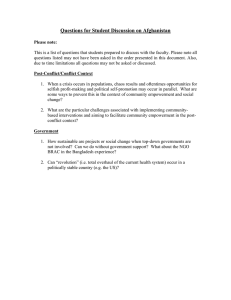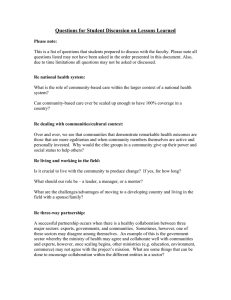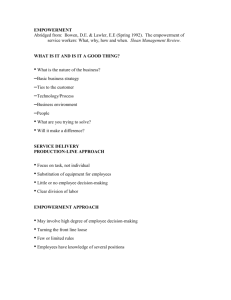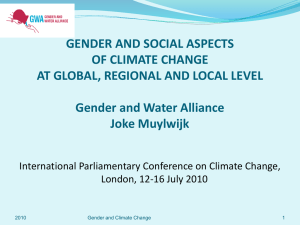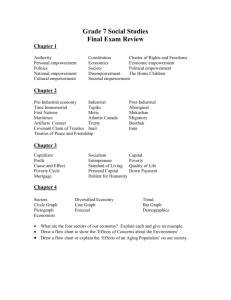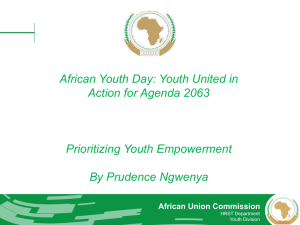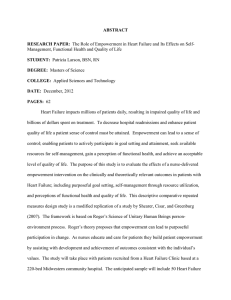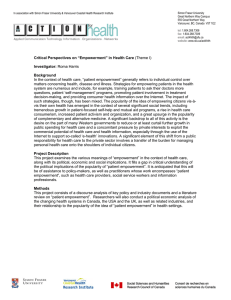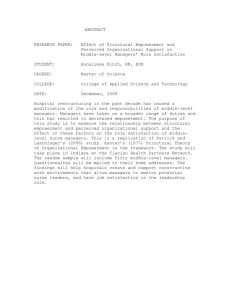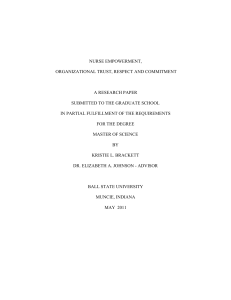Fair Trade`s Economic, Political, & Social Effects on Women
advertisement
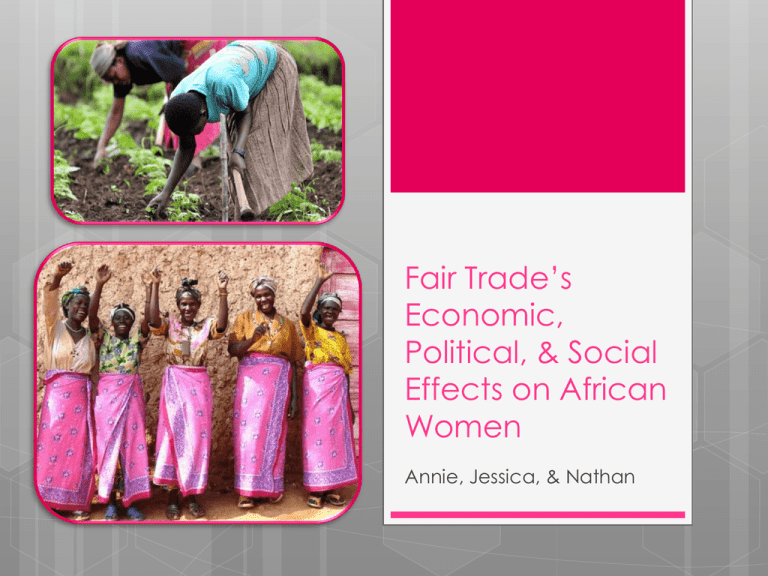
Fair Trade’s Economic, Political, & Social Effects on African Women Annie, Jessica, & Nathan “Development cannot be achieved if fifty percent of the population is excluded from the benefits that it brings.” “Poverty has a Female Face.” United Nations Development Programme Women in Africa Male-dominating culture Heavy discrimination Primarily occupy the informal sector of the economy or low-skilled jobs Africa is ranked the lowest among all other regions of the world in the percentage of women in wage employment in the nonagricultural sector with a value of 8.5% According to the World Bank, in both the public and private sectors, only 1 in 26 salaried African women are employed in a senior management position, compared to 1 in every 6 men Why study women and Fair Trade in Africa? Africa “has the largest number of individual certified smallholders and workers benefitting from the fair trade system” with over 600,000 smallholders and workers 76% of fair trade production performed by women Observe the effectiveness of fair trade on marginalized workers: Women Literature Review Economic Does Financing benefit African Women By: Michael Fleshman Fair Trade Foundation Political World Fair Trade Organization Social Fair Trade Cooperatives and Women's Empowerment By: Miranda Bernstein Beloit College Swazi Indigenous Products (SIP) Fair Trade is able to promote Economic Autonomy, Women’s empowerment, Improved Food Security, and related HIV/AIDS concerns. Providing women with basic job training skills and micro-credit opportunity increased their control over their reproductive health Economic empowerment Improved Food Security https://www.beloit.edu/polisci/assets/Empowerment_8_mar_tables.pdf Theoretical Background Factor endowment theory: fair trade utilizes the abundance of cheap labor to create highly demanded hand-made products. In a sense, the scarce “commodity” that is imported, besides capital, is knowledge of pricing and access to far more lucrative international markets. Economic Effects Small, self-reliant, and stable economies rise around the foundation of fair trade operations. Women allocate fair trade related profits towards further development of the community and its’ economy. Examples: education, creating jobs, and improving infrastructure. Increased access to credit Global Mamas Political Effects UN Development Fund for Women (UNIFEM), in its 2008 report Progress of the World’s Women notes that women will not reach parity with men in legislatures in developing countries until at least 2047 at present rates of increase In contrast, the majority of fair trade operations are run by women. Women managing fair trade operations have substantial political power within their communities. Social Effects No Discrimination Policy Small fair-trade activity has strong impact upon women’s sense of empowerment, ability to feed their households, and orientation to HIV and health generally Household Gender Power Dynamics Women Empowerment in Africa: The Tintsaba Master Weavers Experience Swaziland Started with 12 women in 1985 Trained 895 women in self development and economic skills “Improving incomes by becoming highly skilled weavers” Motivational and business training Mobile Homeopathic Clinic Literacy Program Conclusion: does fair trade help improve lives for marginalized workers such as women? Fair trade can provide steady, fair, income and humane working conditions to people exploited by free trade. Women in particular are empowered due to their better management of profits. The improvement is reflected even more poignantly considering that Africa’s culture generally gives women fewer and inferior employment options compared to men.
